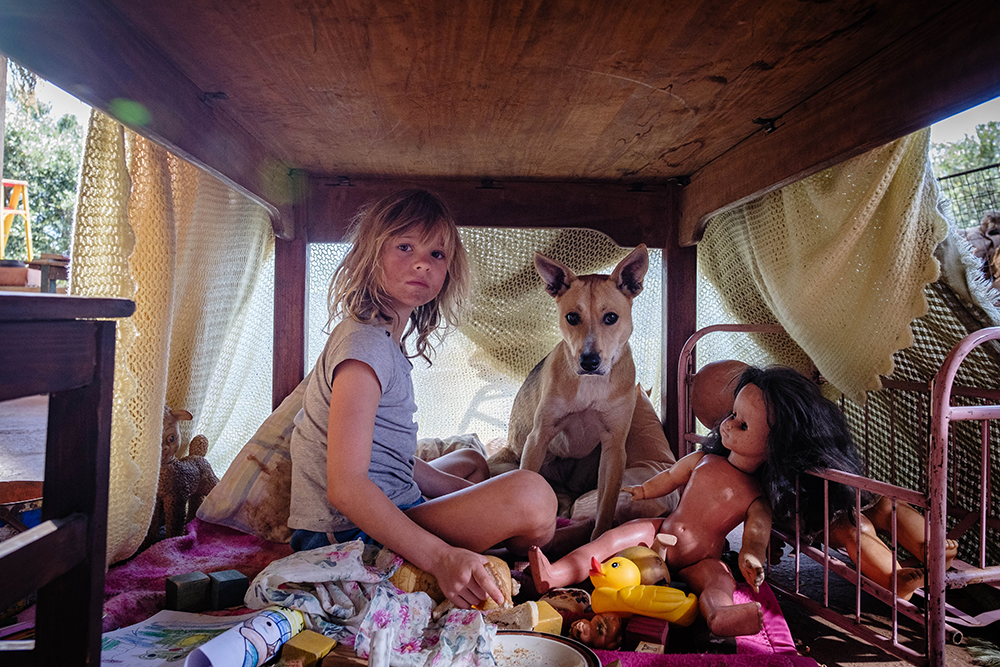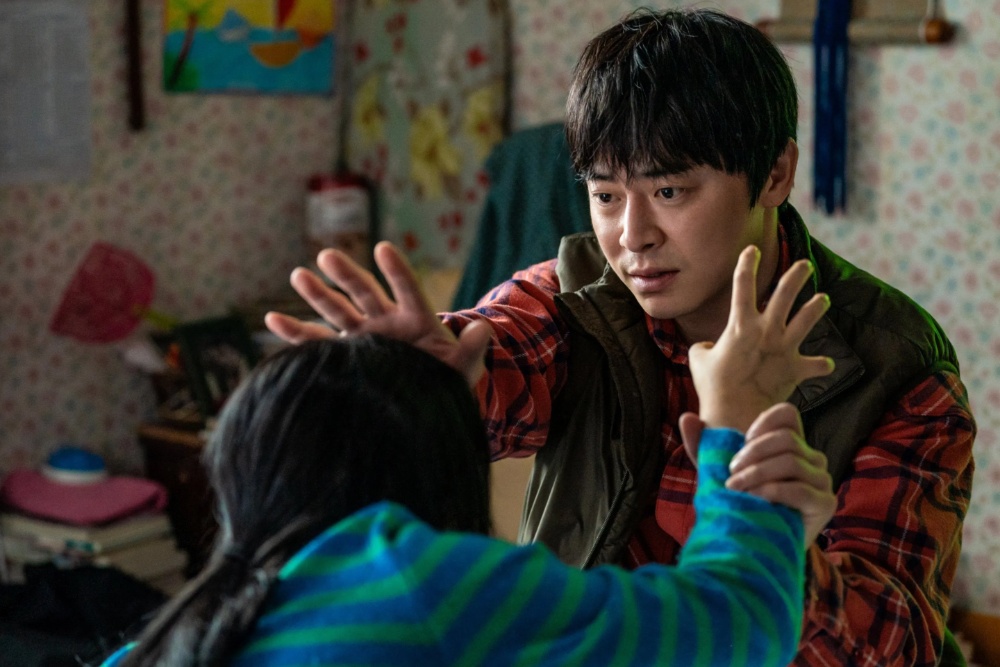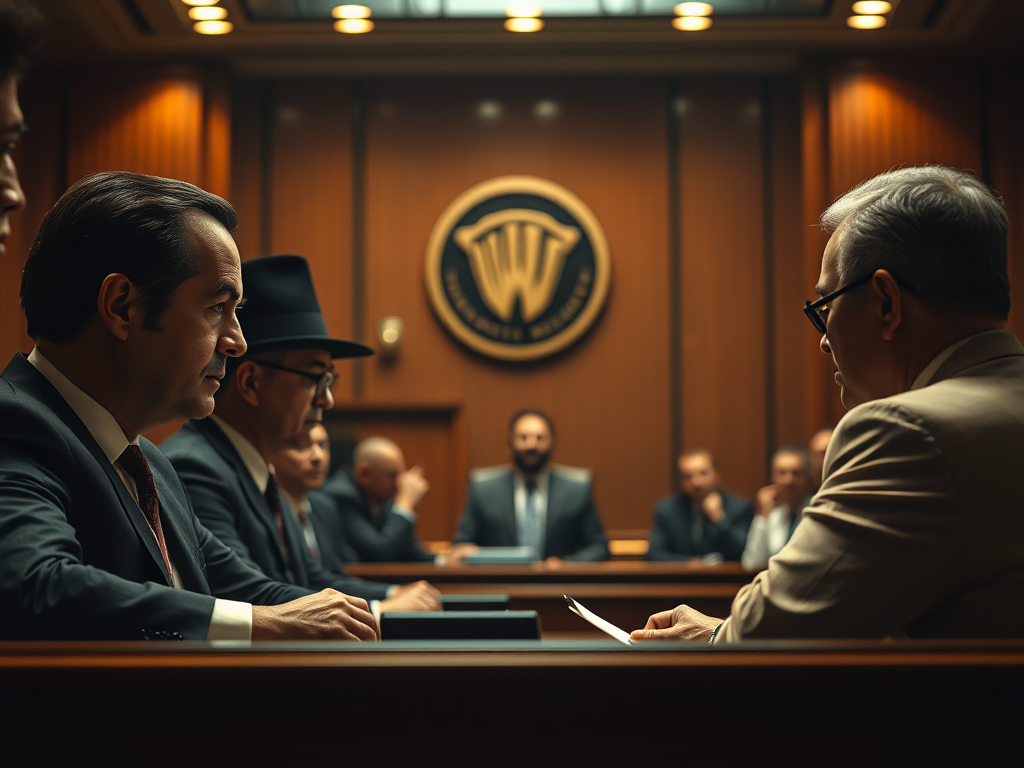The title’s a problem, but it would be a crying shame to let that discourage you from seeing “Don’t Let’s Go to the Dogs Tonight,” which is precisely the sort of intelligent, human-scale adult drama audiences insist no one makes anymore.
Like Claire Denis’ Africa-set “Chocolat,” with Rhodesia (now Zimbabwe) taking the place of Cameroon, the film depicts the collapse of European colonial control from the white settlers’ perspective. For attempting such a tricky project as her directorial debut, enormous respect is due Embeth Davidtz, a versatile actor who moved us as Helen Hirsch in “Schindler’s List,” but never again had such an important role … until now.
The tongue-twisting title hails from Alexandra Fuller’s memoir of the same name. A cursory investigation on my part reveals that it originated as the setup to a joke whose punchline, “for mother will be there,” flies right over my head. But in Fuller’s hands, the phrase takes on a different meaning: “going to the dogs” refers to the way English colonialists in the south African country (which sits just above South Africa on the map) felt about the 1980 election, wherein the Black majority won back control of their own destiny.
Popular on Variety
The film is set in the lead-up to that upheaval, and though it assumes the perspective of Fuller and her family, who felt threatened by the violence that surrounded Robert Mugabe’s victory, the movie doesn’t take the side of its white characters. Davidtz, who was raised in neighboring South Africa (where the film was shot), brings priceless personal insight to this historic redistribution of power.
Opting for an impressionistic approach, she privileges the textures and details an observant young person might recall of her childhood — the sound of insects, the songs they sung, the way it felt to be held by a Black nanny — while avoiding the clichéd imagery that movies like “Out of Africa” have implanted over the years (the romantic shots of elephants and unspoiled savannas). Africa is undeniably beautiful, but it’s also complicated, and Davidtz embraces the thorniness of looking back with nostalgia at a home that wasn’t necessarily hers to begin with.
In adapting Fuller’s book, Davidtz follows the author’s lead in presenting the transition from young Bobo’s point of view (“Bobo” was Alexandra’s childhood nickname), collapsing the book’s two-decade span to the critical year Fuller’s family left Rhodesia. In the process, she reserves the role of Bobo’s mother, Nicola, for herself. It’s a showy and slightly self-indulgent part, this woman who sleeps with a machine gun and crushes ticks with her bare heel. Still, it’s hard to fault the underused star for wanting to play such an extreme character — or for letting her unravel quite so dramatically on screen.
The actor-turned-helmer deserves even greater credit for the near-feral turn she coaxes from Lexi Venter, the inexperienced local girl she found to embody Bobo. With her matted blond hair and blazing brown eyes, Venter (who was 7 at the time) brings the intensity of a wild animal to the part, which is balanced by a kind of ironic voiceover in which Bobo naively repeats things she’s heard the adults around her say (as when she refers to the “terrorists” who might raid their home at any time) or misinterprets grown-up behavior (describing loud noises in her parents’ bedroom as “moving furniture with their clothes off”).
It’s a clever strategy, one that allowed Davidtz to shape Venter’s performance in editing, using the child’s narration to explain what’s going on behind the girl’s fierce gaze. The Fuller family represents a phenomenon common throughout the British empire, where middle-class whites left their home country to enjoy greater opportunity — and higher social standing — in the colonies. In Rhodesia, Bobo is waited on by Black servants, including her beloved Sarah (Zikhona Bali), who indulges the already spoiled child, to a degree, scolding Bobo when she sees her ordering the Black kids around: “You are too young to be bossing.”
Bobo, her mother and slightly older sister Vanessa (Anina Reed) live on an expansive ranch in the country, which requires an armed convoy to protect them when they drive into town. Davidtz accentuates the sharp contrast between Bobo’s lifestyle and that of her racist grandparents, who say things like, “We have breeding, which is better than money” within earshot of “the help.” With her fierce curiosity, Bobo absorbs everything around her and repeats what she sees without filter, offending her parents when she repeats how a family friend sexually assaulted Vanessa in front of her.
Tensions mount between Blacks and whites amid the elections, and Nicola — who starts out strong, à la Sally Field in “Places of the Heart,” tending the homestead in her husband’s absence — loses her mind as the world she built collapses around her. Davidtz hints at a family tragedy, but saves the reveal until late in a film that can sometimes be unclear, emphasizing sense memories over strict chronology (shooting from the back seat and under tables, to reinforce Bobo’s perspective). The timeline is assembled in such a way that emotional touchstones can sometimes feel manipulative, considering how ruthlessly unsentimental Bobo’s narration sounds. But it’s nothing an intelligent audience can’t parse.
If you’re the sort who appreciates being immersed in an underrepresented moment in world history, don’t let the title stop you.





